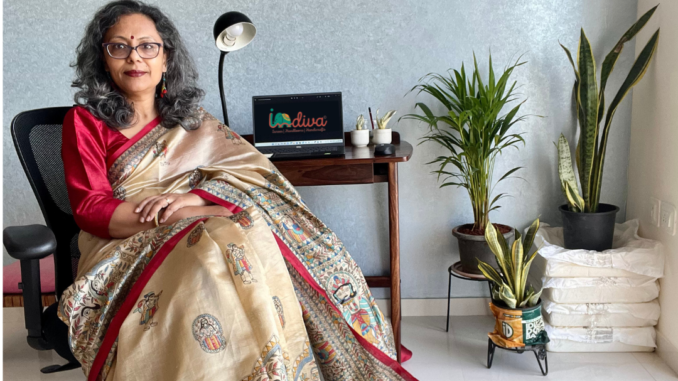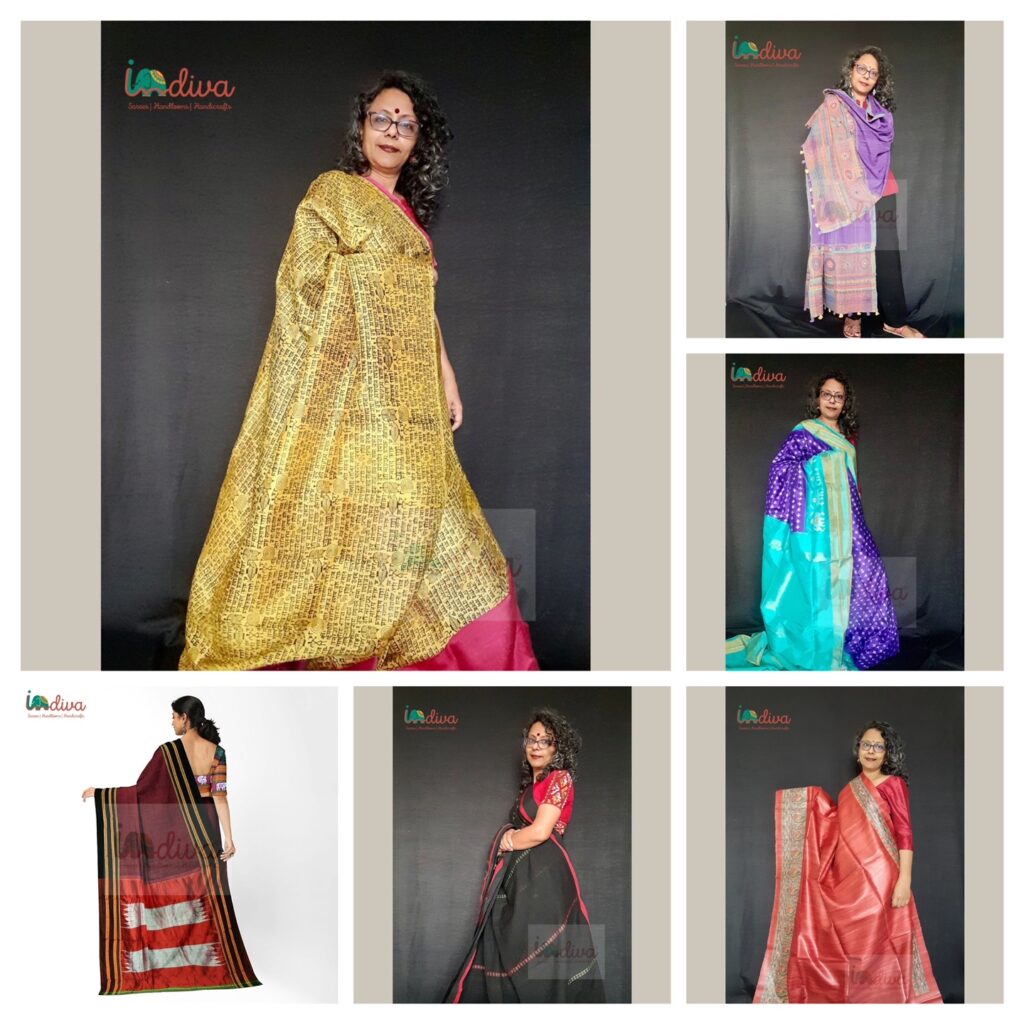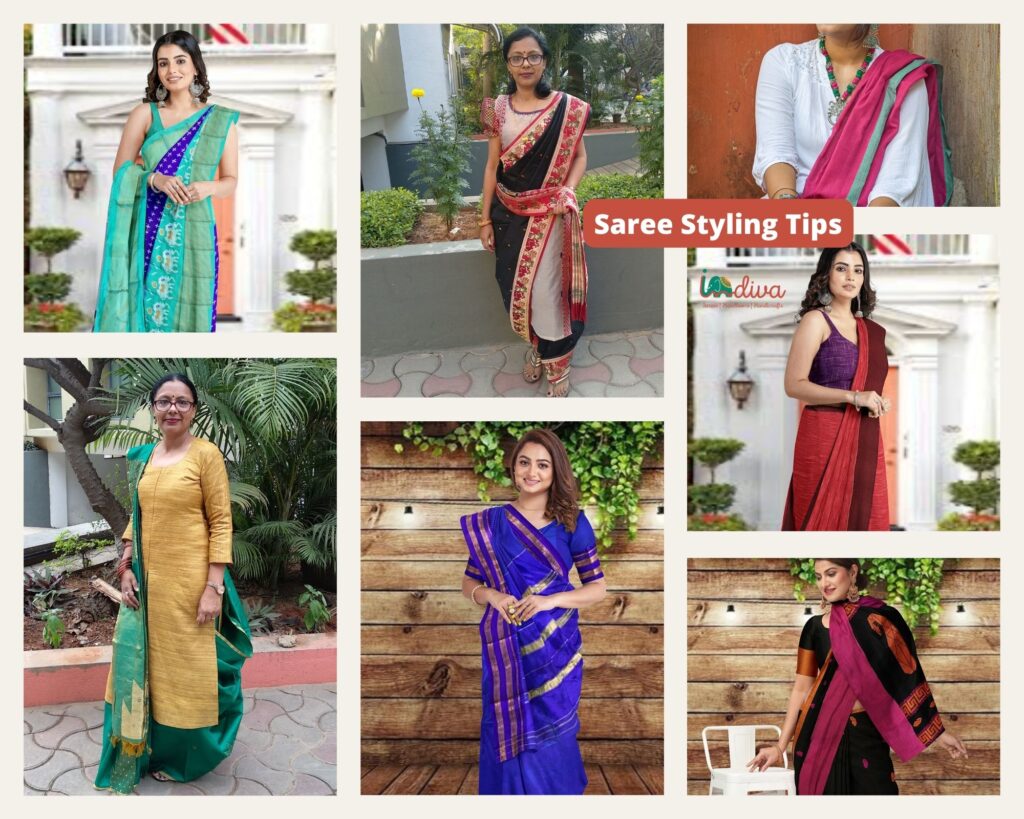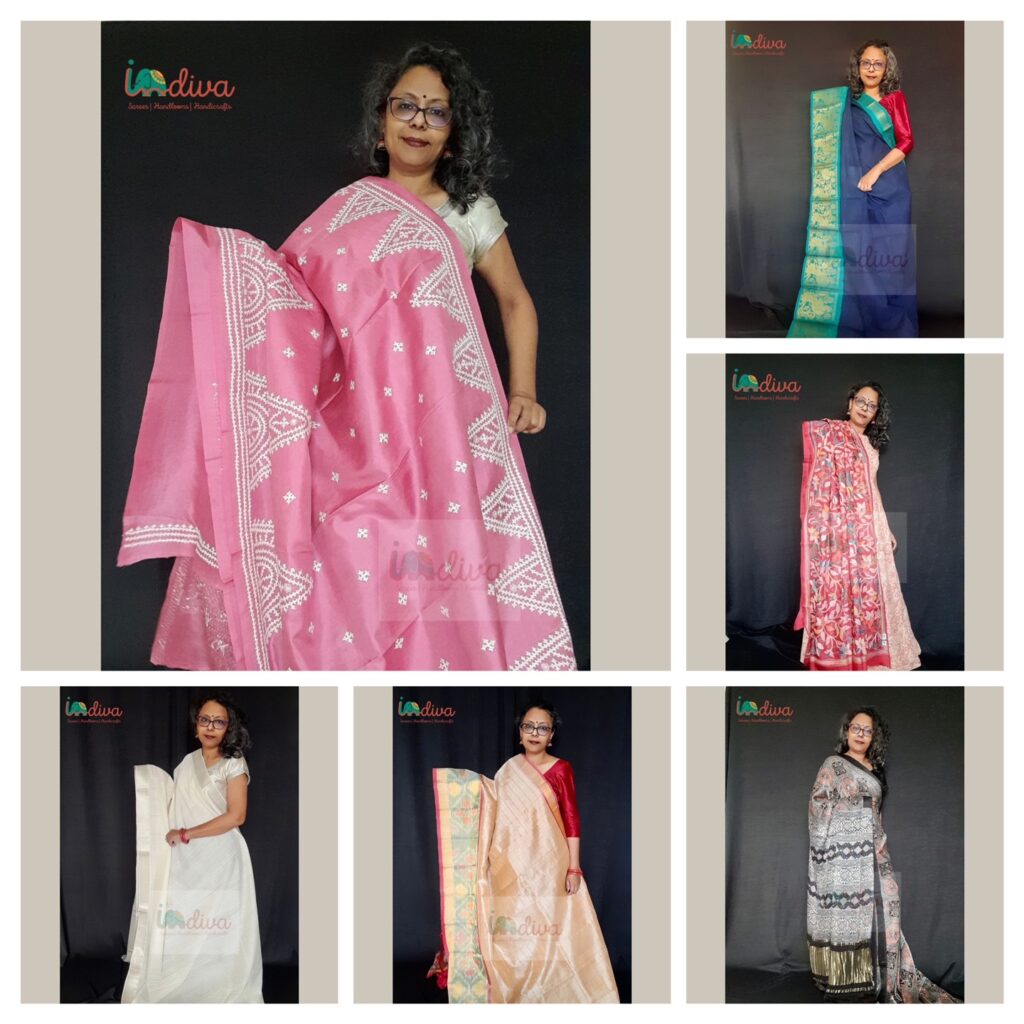
From being first generation female engineer in her family, becoming a software developer, leaving it all to be a full time parent for almost a decade, coming back to work with a vengeance and finding a different career path for more flexibility between work and life, Geetha Srinivas has done it all. And now she is wearing another new hat of an entrepreneur to pursue her long-time desire of establishing a sustainable clothing brand Indiva. With more than 25 years of experience in different domains of work Geetha’s is a marvellous story of passion and learning, trying and triumphs and taking calculated risks which is often feared by working women. Science and I is glad to bring you Geetha’s story of becoming an expert hustler, trying her best and becoming best at it.
Geetha, please tell us about yourself and your experiences before you started with your own journey of becoming an entrepreneur.
Before starting my brand Indiva, I worked in the corporate sector for 17 years. By qualification I am an Instrumentation Engineer and worked in the field of Software development for 2 years before the birth of my kids. But after I got busy with parenthood, I took a break from my career for over a decade. When my kids started full day school I felt ready to resume my career but wanted to work in a role with flexible work hours. Thus, I moved into Technical Writing in Software industry, where I went on to spend nearly 15 years of my career.
However, my long-standing dream was always to begin a clothing brand. I knew that the corporate life wasn’t what I wanted in the long run and hoped to one day fulfil my dream.
How did you come up with the idea for your business and how did you raise funding?
Since my schooldays I have been designing and stitching my own clothing, and thus have always had a love of handmade clothes. Over time, this also evolved into a love of sarees, and for a long time I held the dream of owning a clothing boutique.
At work, I began to notice that most youngsters who were working with me would only wear western outfits to office. Very rarely did I see anyone donning sarees or other traditional clothing. That got me thinking that my daughters may never know or own any of the heritage handlooms and sarees of our country. This inspired me to draw attention to the vast variety of traditional fabrics and sarees in the country.
Planning to eventually invest in my longstanding dream I had been putting aside some of my salary as savings. Once my children completed college, I took the leap and quit my job. The money I had been saving over the past few years helped me fund my business.
What is unique about your business/venture and whom does your business cater to?
My brand, Indiva is a sustainable clothing brand that promotes hand-woven and handmade clothing made only with natural fabrics. We promote the rich cultural tradition of Indian handlooms and various traditional techniques of printing, dyeing, and embroidery.
We are conscious about ethically sourcing our vast repertoire of sarees and fabrics directly from weavers and artisans. For stitching and embroidery, we have partnered with an NGO that upskills women from socio-economically weaker communities by teaching them skills such as tailoring, hand embroidery, crochet and providing them with a livelihood.
We cater to socially and environmentally conscious consumers who seek sustainable and unique handcrafted apparel.
What is your ‘vision and mission’ and how do you define success for your company?
Our mission is to promote natural fabrics, handlooms and traditional weaving, stitching & dyeing techniques through contemporary designs. Our vision is to revive traditional handlooms and promote conscious consumption.
If I can inspire our clients to switch from fast fashion to a more sustainable clothing, I would consider it to be a success for Indiva.

Who are your competitors and what are the challenges in your business?
The most obvious competitors to Indiva are other saree and traditional clothing brands such as Suta, Taneira, FabIndia etc.
Yet I also consider platforms such as Myntra & Flipkart, and brands such as Pantaloons to be our competitors. They also sell sarees, traditional and fusion wear, but at much lower prices as most of their products are machine made and composed of synthetics.
The key challenges that at the moment Indiva is facing are –
- The prevalence of fast fashion at extremely low prices, thus driving rampant consumerism and drawing consumers away from more sustainable products and consumption patterns.
- Our financial inability to compete with large brands funded by conglomerates who can capture a large share of voice in the market.
We constantly keep looking for innovative and cheaper ideas to reach new customers and keep our existing customers engaged through digital marketing and social media. We also focus on personally connecting with people through our values and stories. We try to build the brand hyper locally in both physical and virtual spaces.
How are you planning the growth for your business to take it to the next step?
Our plan for the future is to provide a one-stop shop for handlooms. We are developing off-the-shelf ready-to-drape sarees with pre-stitched fall and pico/edging to reduce the need for tailoring by customers. We are also developing a range of Indo-western fusion wear using handcrafted fabrics.

How do you promote (advertise) your business?
Promotion for Indiva was initially done through word of mouth with the help of few good friends and relatives. Gradually, we gained a base of repeat customers who now act as our brand ambassadors. We also use Indiva’s Facebook and Instagram social media pages @indivalooms to promote our online store. Additionally, we set up pop-up stores during flea markets and other events to build brand awareness and test new markets.
How did your education and experience in STEM help you to tackle the challenges you face on a day to day while running a business?
I have come to realize that most people with a STEM background have strong analytical and logical skills. These skills helped me with setting up my business. Although I have never worked in Web Development, I had enough technical knowledge to help me learn and build my own website, manage my online store, integrate, and manage social media accounts etc. My experience working in the IT industry also gave me the confidence to ask the right questions and get things implemented when I later hired an agency to manage the website.
Can you please share an ‘Aha’ moments with us which keeps you going with your journey.
Indiva initially started out as a saree brand with a collection from across the country. Our focus was on selling a large variety of sarees from each region of India. We were not focused on sustainability or handlooms. However, while running Indiva I came to learn about fast fashion and the detrimental impact of the fashion industry on the environment. I realized that our heritage handlooms and handicrafts are much more socially and environmentally sustainable than most products available in the market today.
This realization drove me to pivot into selling only ethically sourced handlooms and handcrafted apparel made with natural fabrics.

What would your tips be to those who are planning to start their own businesses?
My few tips for an aspiring entrepreneur are:
- Starting a business requires a lot of time, energy, commitment, and money. You need to constantly be on your toes, make sure that you are doing the right thing. Prioritise your tasks and take one thing at a time.
- Talk to like-minded people, join a business group so that you learn from each other’s experiences, and you know that you are not alone in your challenges.
- Entrepreneurship is a very lonely journey. There will be times when you feel like giving up and quitting because it gets too hard. If you really have the passion for your idea then don’t give up on it. Most of the times you need to be self driven and remember the big picture and sometimes you need to take small breaks and distance yourself completely so that you can come back to it with full gusto.
- It is important to take care of your health while pursuing the Solo journey of an entrepreneur, simple exercise routine, sleeping enough whenever it is possible, keeping yourself hydrated, deep breathing at the times of anxious client presentations and enjoying even the small wins are few things to remember to continue persisting in the journey of being an entrepreneur.
